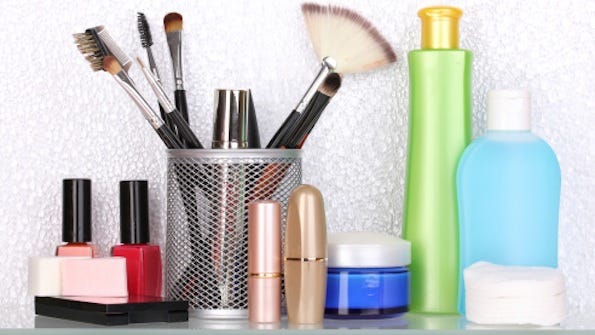5 tips to boost natural beauty sales5 tips to boost natural beauty sales
Long time-Whole Foods Whole Body executive global coordinator and beauty brand entrepreneur Jeremiah McElwee offers advice for raising the bar in your beauty department.

 Between implementing industry-leading labeling policies and curating one of the country’s best health and beauty departments, Jeremiah McElwee left his mark on the natural and organic personal care category in his seven years as Whole Foods’ Whole Body executive global coordinator. Today, he’s applying this expertise to his own line—Yogi Fair Skincare, a company that’s taking a holistic approach to beauty by embracing the “yoga tribe.”
Between implementing industry-leading labeling policies and curating one of the country’s best health and beauty departments, Jeremiah McElwee left his mark on the natural and organic personal care category in his seven years as Whole Foods’ Whole Body executive global coordinator. Today, he’s applying this expertise to his own line—Yogi Fair Skincare, a company that’s taking a holistic approach to beauty by embracing the “yoga tribe.”
Here, he uses his manufacturer and retail knowledge to lend top tips for maximizing beauty sales and education.
Have high standards.
As consumers continue to demand higher quality products, strict retail standards, such as what McElwee implemented at Whole Foods (“organic” personal care products either needed to get third-party certification or ditch the term from labeling and marketing), are becoming more and more important. With more competition, strict vetting processes are one way to stand apart. “Conventional retailers are stepping up and conventional brands reformulating. Natural retail must compete with mass drug, conventional, and Sephora-like stores.”
Brands, too, should raise the bar on quality in order to be differentiated from the greenwashers, he says. “Every brand under the sun is trying to tag onto the growth of naturals.”
Provide service.
According to McElwee, natural stores can also learn from the successes of conventional cosmetics retailers. “With the department store/Sephora model, the biggest difference is the service element. You can go into those stores and spend as much time as you want with a dedicated sales rep.”
Retailers should more closely partner with their manufacturers to create a model like one that Pharmaca has excelled in, with its in-store education and community events.
Go social.
Though it should be obvious, many retailers are not leveraging social media to get more customers into their HABA departments. “We do a really bad job of using social media and all of the simple tools. We need to get up to speed on that to share information,” says McElwee.
Social media can be a great way not just to promote new products and lines, but also to further educate about ingredients and benefits, host contests and welcome feedback from customers.
Tout the health/beauty connection.
McElwee points out that only about two to three of every 10 customers find the personal care section in natural retail stores. “The number one feedback we got was, ‘we didn’t even know you sold that.’” Beauty departments shouldn’t just be about beauty products—they should focus on how these products relate to overall health and the rest of the products throughout your store.
By running storewide promotions and hosting events that incorporate various types of products, awareness will increase. McElwee recommends hosting regular (emphasis on regular) events such as a spa night with an esthetician, fresh fruit from produce section, and organic wine if your store sells alcohol.
Create a “beauty destination.”
This may be the hardest piece of advice to follow, because it truly takes time and commitment to make your HABA department an environment that customers seek out, rather than leaving your store to head to Sephora for their cosmetics after they've purchased their groceries.
Try a small-scale store-within-a-store concept, which will appeal to a higher ticket customer. Focus on clean sampling stations and good lighting. Even something as simple as “signage with little brief descriptions of the brands and favorites in one of your team member’s own words” can make a huge impact, McElwee says.
And the biggest takeaway: Focus on overall health and wellbeing rather than why chemicals are bad. “Lead with the positive message.”
About the Author
You May Also Like





